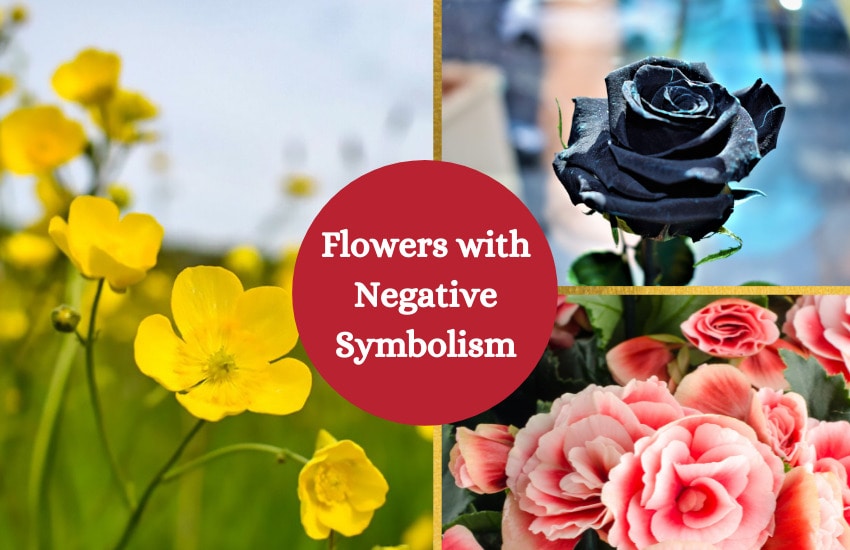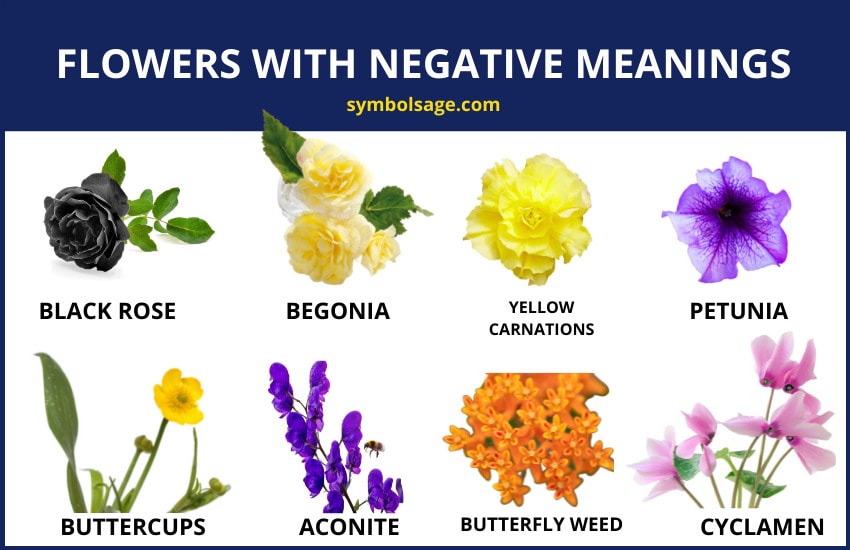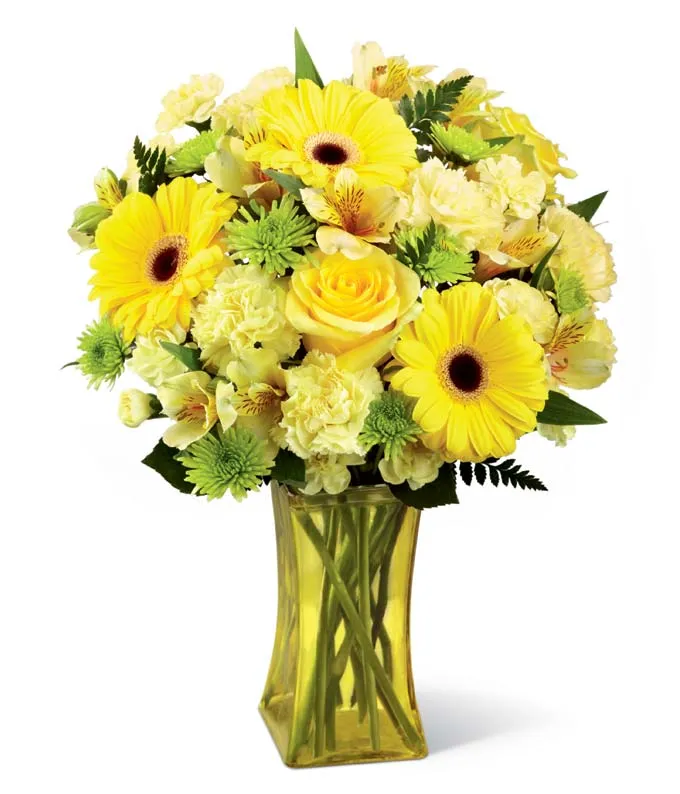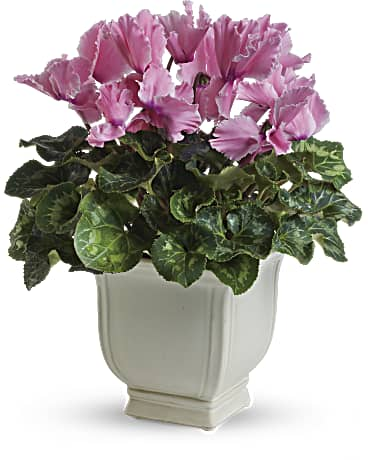
Table of Contents
Flowers aren’t just beautiful to look at. They’re also highly symbolic and have gained various meanings over time.
While most flowers tend to have positive meanings, some have negative associations.
By knowing the message and meaning of flowers, you can easily select the right flowers for the right person and avoid any unwanted mixed messages.
Flowers With Negative Symbolism
There aren’t many flowers with negative meanings, and those that are negative also have versions that hold positive associations. For example, while the red rose symbolizes love and passion, the black rose symbolizes death.
We can’t write off a flower simply because it has a negative meaning, because it can also hold positive connotations. What’s more, at the end of the day, all flowers are beautiful and inherently have no meaning at all, except for what we give them.
With that said, here are the most well-known flowers with negative meanings.

1. Black Rose (Death)
Let’s start with one of the most common types of flowers. Roses are very popular and can be found in different colors, each with its own meaning. Of these, the very rare black rose holds the most negative meaning, symbolizing death.
Black roses aren’t exactly black but are very dark purple or blue roses, but their appearance has made them a symbol of death. Giving a person a black rose can be misconstrued as a negative gesture.
It’s best to avoid this flower unless you know the receiver likes it. After all, some do consider the black rose exceptionally beautiful.
2. Yellow Carnations (Rejection)

Yellow is a color that symbolizes happiness and positive thinking, which is why yellow flowers like sunflowers are considered symbols of optimism and happiness. However, this isn’t the case with yellow carnations. Yellow carnations represent rejection and disregard. There is nothing wrong with keeping this flower in the garden, but giving it as a gift to others is not the best idea.
3. Buttercups (Childish Behavior)
Another yellow flower that falls into the category of flowers with negative meanings, the buttercup is a symbol of childish behavior, ingratitude, and unfaithfulness. This is why this flower has no place in most florist shops or flower bouquets, no matter how beautiful it is.
This is a shame, as the beautiful hues of buttercups have a positive and cheery appearance but according to the language of flowers, these little blooms shouldn’t be gifted.
4. Petunia (Anger)
Despite their striking appearance, petunias are a symbol of deep dissatisfaction, resentment, and anger. The name petunia translates loosely to tobacco that doesn’t make a good smoke, referring to the plant’s similarities to the tobacco plant. In literature, Harry Potter’s aunt, a woman described as being deeply resentful of her sister, is called Petunia. This was probably not a coincidence.
5. Aconite (Hatred)
Also known as Monkshood (because each flower looks like a hooded monk), Aconite has beautiful purple flowers that grow on stalks. However, while it has some positive meanings, it’s also a symbol of hatred. Its less flattering name is the Devil’s Helmet.
This symbolism may be derived from the fact that Aconite is poisonous and causes itching and a burning sensation when it comes into contact with your skin. So it’s best to avoid giving this flower to anyone, not just because of the meaning, but because of how poisonous it is.
6. Butterfly Weed (Leave Me)
Butterfly Weed is a species of milkweed, with bright orange clusters of flowers. It’s called Butterfly Weed because of how butterflies are attracted to the plant. However, while it looks gorgeous, symbolically the flowers represent solitude and the rejection of others. Giving this flower to someone is said to represent saying Leave me. In other words, this flower symbolizes the idea that whether you like it or not you must leave me in any way.
7. Orange Lilies (Humiliation)

Lilies are among the most popular flowers, and have traditionally been carried by brides, or given as gifts in bouquets. However, orange lilies carry negative connotations and can represent pride, hatred, and humiliation.
8. Chrysanthemums (Nightmare)
Among the most popular flowers with a variety of uses, chrysanthemums have also been used in many European countries at funerals to honor the memory of the deceased. This is because chrysanthemums represent (among other things) sadness and grief. It is also mentioned in some old superstitions that chrysanthemums bring bad luck and nightmares.
9. Begonia (Negligence)
Begonias are beautiful flowers that can grow easily in various environments. In terms of symbolism, begonias can be seen as a symbol of caution, warning you about potential misfortunes and bad luck. It can also symbolize negligence.
10. Cyclamen (Separation)

Cyclamens are colorful flowers that can represent everlasting love and affection. However, they also represent separation. This flower also means that emotions fade, so if you are about to break up with someone, this flower can convey the message.
Conclusion
The above relatively famous flowers are beautiful, but they do hold negative meanings. While not everyone cares about the symbolism of flowers, some do, so if you’re giving flowers to someone, it’s best to ensure that they don’t convey any negative meanings.








